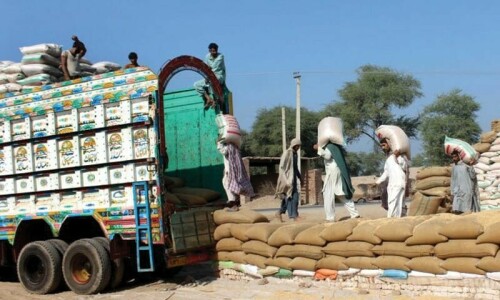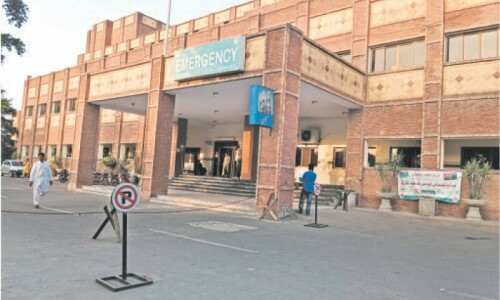LAHORE: The Punjab government has hinted at the possibility of taking action against the religious schools found to be involved in militancy in any way.
“We’ve completed mapping of registered and unregistered madaris in the province and may initiate action against 10 percent of them,” Punjab Home Minister retired Col Shuja Khanzada told reporters at the Punjab Assembly on Wednesday.
He chose not to divulge detail of the madaris to be targeted, and said the provincial government had formed a panel, consisting of political and security leaders, to suggest precautionary measures to meet security needs besides implementing the decisions to be taken by the federal government on this issue.
Also read: Madressah reform
To a query, the minister said he condemned the stance of Lal Masjid’s Abdul Aziz about the Peshawar Army Public School, adding the masses hoped that a legal action would be taken against the cleric.
He said the government would not accept pressure from any side on the execution of terrorists.
Also, the government introduced a third amendment in the Punjab Local Government Act.
The statement of objectives of the amendment bill, tabled by provincial minister Chaudhry Sher Ali, said the changes in the law were being affected in the light of the meeting held with the Election Commission of Pakistan (ECP) on December 2 under a Supreme Court directive.
It said the ECP sought defining the word ‘election’, banning alteration in constituencies after the election schedule is made public, authorising the ECP to select returning officers even from federal government employees, as well as correcting a ‘clerical error’ in Section 37 of the act.
The law was updated only four weeks ago on November 24.
The agriculture minister told the Punjab Assembly on Wednesday it would introduce new laws to minimise the role of middlemen in markets.
During the Question Hour, Dr Farrukh Javed said the step was necessary to arrest increase in the prices of food items.
He said that the government had decided to shift food markets outside the municipal limits.
He would not respond to a supplementary question by a treasury member about the collection of fees from the Faisalabad Agriculture University students.
Mian Tariq had to withdraw his question when the chair, being held by Speaker Rana Muhammad Iqbal, snubbed him for putting “unnecessary” stress on queries.
Through a point of order, Jamaat-i-Islami’s Dr Syed Waseem Akhtar raised the issue of shortage of gas and sharp increase in prices of LPG, an alternate source of energy, despite a declining trend in world prices.
The chair adjourned the proceedings till Friday morning.
Published in Dawn, December 25th, 2014














































